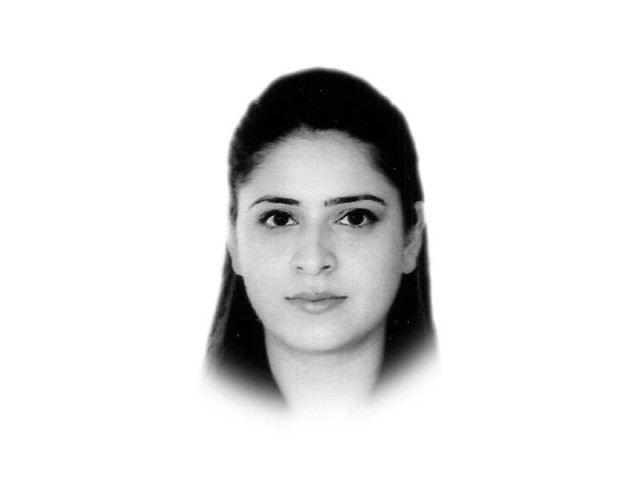Are you ready to become a welfare state?
To realise the vision of a ‘welfare state’ for Pakistan’s poor, the government needs to go further

The writer is an MBA and entrepreneur. She is currently a central executive committee member of the Pakistan Tehreek-e-Insaf. She can be reached at sarah.ahmad@insaf.pk
A state in which the welfare of the people in such matters as social security, health and education, housing and working conditions is the responsibility of the government. The services that the welfare state provides include education, housing, sustenance, health services, unemployment insurance, days off for sickness or injuries, additional income in special circumstances and equivalent wages through wage controls. Other services include public transportation, child care, social public goods like public parks and libraries, swimming pools and other such goods and services.
Some of the services provided could be funded by government insurance programmes or taxes collected by the government. A good example of a true welfare state is the Netherlands, as it is doing really well on all its economic indicators. Their health benefits provided to their citizens and social security system is exemplary. To support people on a low income, the Dutch government offers a healthcare allowance, a regular contribution to help cover the monthly premiums for Dutch health insurance and this is compulsory for everyone. The Netherlands’ social security system covers four areas: the pension system, child benefits, survivor benefits and long-term care. Then there is the employment social security, where social security payments for employee insurance — required for all employed persons are automatically deducted from their income by their employer. This includes unemployment benefits, sick leave and disability benefits. Another help to its citizens is their family benefits and child allowance. In this each family with at least one child under the age of 18, including adopted and step-children, can receive child allowance.
If we compare this to our country, our federal government, as well as provincial governments, allot a meagre amount of their budgets for health, education and other basic necessities. Our national debt has increased manifold, causing a high rate of inflation. It becomes more and more difficult for people to arrange for their basic necessities due to high inflation. Building motorways and expressways is good but not at the cost of basic necessities.
To realise the vision of a ‘welfare state’ for Pakistan’s poor, the government needs to go further. At present, only 30 per cent of children in the poorest families go to school. The government needs to roll out its plan to provide each family with an additional Rs200 a child every month if their children have an 80 per cent attendance record at school. Nearly half of all under the age of five in Pakistan are chronically undernourished. This stunts mental and physical development, lowers IQ and achievement at school, and reduces earnings in adulthood.
These children are half the future workforce of Pakistan. So why not design a scheme to provide them with essential food and nutrients so that they have a productive future? Instead of wasting money and time on designing new targeting mechanisms for every anti-poverty programme, the government and donors need to use the same poverty scorecard for all interventions.
International evidence shows women receiving cash grants invest in their families, keep their children in school, feed them better and buy medicine and healthcare. Over time, this future earning potential helps to break the cycle of poverty from generation to generation. In Brazil, the anti-poverty scheme Bolsa Familia helped reduce poverty by a remarkable 28 per cent during the first term of President Lula da Silva’s administration and helped reduce inequality by 20 per cent since 2001. About 12 million Brazilian families receive funds from Bolsa Família, which has been described as “the largest programme of its kind in the world.”
Can Pakistan afford to follow something similar? I would acknowledge the K-P government for taking an initiative of providing health insurance cards in the province. With more than half of the K-P population having 2.4 million health insurance cards, medical treatment has become affordable for the common man. But we need much more. As per my rough calculation, if similar health insurance cards are distributed among our entire population of 200 million, Rs50- 60 billion will be needed from our budget and as a result health conditions of our entire population will benefit. Another solution is to cater to the big menace of the unemployed who are suffering. If the government provides social security benefits to all degree holders who are unemployed, as a result the unemployed would at least be able to survive in this era of high inflation. All the above can easily be funded by taxes that we pay to the government.
The need of the hour is a proper taxation system. Currently, only 1% of our population is paying tax, which is alarming. If we widen the tax net, properly document everything and apply strict checks by ensuring a foolproof tax system, we can easily increase our tax collection figure from Rs4 trillion to Rs40 trillion or even more. Nothing can stop Pakistan from becoming a true welfare state. What is required is the will to do so. The only question is: can Pakistan afford not to invest in its people at this stage?
Published in The Express Tribune, April 12th, 2018.
Like Opinion & Editorial on Facebook, follow @ETOpEd on Twitter to receive all updates on all our daily pieces.















COMMENTS
Comments are moderated and generally will be posted if they are on-topic and not abusive.
For more information, please see our Comments FAQ